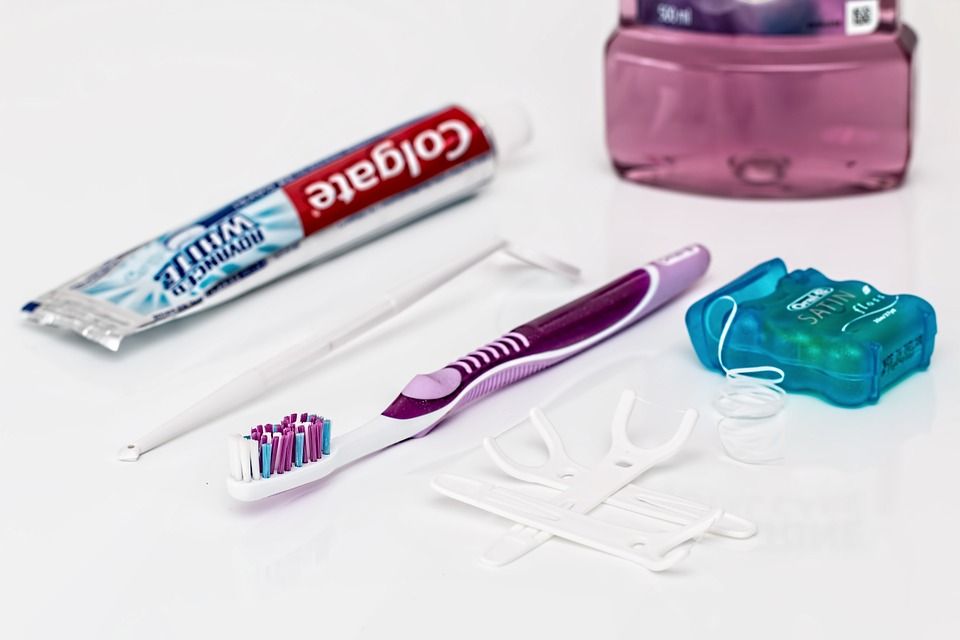Tag: dentist roselle
The Benefits of Cosmetic Dentistry: Enhancing Your Smile and Overall Appearance | Dentist in 60172

Cosmetic dentistry is becoming increasingly popular as people look for ways to improve their smile and overall appearance. From porcelain veneers to teeth whitening, cosmetic dentistry can help to enhance your appearance and make a huge difference in the way you look and feel about yourself. Here, we’ll explore the many benefits of cosmetic dentistry and why you may want to consider this option.
One of the main benefits of cosmetic dentistry is that it can help to improve your confidence and self-esteem. When you have a beautiful, healthy smile, you’ll feel more confident in both your personal and professional life. This means that you’ll be able to talk and smile more freely, and you’ll no longer be self-conscious about your smile. This boost in confidence often translates into better social and professional relationships, as well as improved job performance and opportunities.
Another benefit of cosmetic dentistry is that it can help to improve your overall oral health. Many of the procedures used in cosmetic dentistry, such as porcelain veneers and dental bonding, can help to strengthen your teeth and prevent future problems. This can help to reduce the risk of cavities and other dental issues, as well as improve the appearance of your smile.
Cosmetic dentistry can also help to reduce the signs of aging on the face. As we age, our teeth may become less white and our gums may recede. This can cause our face to appear tired and aged, which can be very discouraging. However, cosmetic dentistry can help to reverse these effects and restore a more youthful appearance to your face.
Finally, cosmetic dentistry can also help to improve your overall oral hygiene. When you have a beautiful smile, you’ll be more likely to take better care of your teeth, which can help to reduce the risk of cavities and other dental problems. This means that you’ll be more likely to practice good oral hygiene, including regular brushing and flossing, and you’ll be able to enjoy a healthier smile for many years to come.
Overall, cosmetic dentistry can provide many benefits, from improved self-confidence to better oral hygiene. If you’re considering cosmetic dentistry, be sure to speak with your dentist to learn more about the different options available and to determine which ones are best for you. With the right treatment plan, you can enjoy a beautiful, healthy smile for many years to come. Contact our dental office today to schedule a consultation.
5 Causes of Bad Breath and How to Prevent It | 60172 Dentist

Bad breath is a common problem for many people and can have a negative effect on their social lives, self esteem, and overall quality of life. It’s important to understand the underlying causes of bad breath so that you can take the necessary steps to prevent it. Here are the five main causes of bad breath:
1. Poor Oral Hygiene: Poor oral hygiene is one of the most common causes of bad breath. Food particles can remain in the mouth, which can lead to bacteria growth and an unpleasant smell. To prevent this, it’s important to brush and floss your teeth at least twice a day and use an antibacterial mouthwash. Additionally, you should visit your dentist at least twice a year for a professional cleaning.
2. Dry Mouth: Dry mouth is another major cause of bad breath. Saliva helps to wash away food particles and bacteria from your mouth, so when saliva production is reduced, bacteria can thrive and cause bad breath. To prevent this, it’s important to stay hydrated and avoid drinks that contain caffeine or alcohol, as they can contribute to dry mouth.
3. Smoking and Tobacco Use: Smoking cigarettes and using other forms of tobacco can also cause bad breath. This is because the smoke and other chemicals in tobacco products can dry out the mouth and increase the growth of bacteria. Quitting smoking and avoiding other forms of tobacco can help to prevent bad breath.
4. Certain Foods: Eating certain foods can also cause bad breath. Foods such as garlic and onions contain compounds that can be broken down in the body and released through the breath. To avoid bad breath after eating these foods, it’s important to brush your teeth and use mouthwash afterward.
5. Medical Conditions: In some cases, bad breath can be a sign of an underlying medical condition. This can include conditions such as diabetes, acid reflux, and kidney or liver disease. If you have persistent bad breath, it’s important to speak to your doctor to rule out any medical conditions.
Bad breath is a common problem, but it’s important to understand the underlying causes so that you can take steps to prevent it. Following a good oral hygiene routine, staying hydrated, avoiding smoking and tobacco use, eating certain foods in moderation, and ruling out any medical conditions are all important ways to help prevent bad breath. Contact our dental office today to schedule an appointment and help avoid common issues which may contribute to bad breath.
Would Dental Veneers be a Good Choice for Me? | Dentist In Roselle
It is common when patients visit our dental office to ask about solutions to fix stained teeth or fill in gaps between their teeth. Veneers are frequently recommended as the perfect cosmetic solution. Among the cosmetic options available for correcting your smile, veneers are one of the most popular. Here are a few things you should know about veneers and whether they are right for you and your smile.
Veneers: What Are They?
Veneers are thin covers that are placed over the front surfaces of teeth. Porcelain veneers are typically made from dental porcelain, and they are designed to cover your existing tooth, not replace it. In most cases, people choose veneers for cosmetic reasons to help them achieve the perfect smile.
How do veneers work?
Veneers are useful for a variety of issues, including fixing broken or chipped teeth, shrinking gaps between teeth, and reducing visible stains on teeth. Our office custom-sizes them to fit your teeth. Since veneers cover your teeth, the structure of your teeth is not affected.
What you need to know about porcelain dental veneers:
When you have porcelain dental veneers, there is sometimes a slight increase in sensitivity after receiving them, particularly to hot or cold foods and beverages. Typically, veneers are irreversible since a small amount of tooth enamel must be removed in order to place them. Avoiding drinks like wine, coffee, and tea after getting veneers is the best thing to do. These are frequently the sources of staining. Brushing twice a day and flossing regularly are still necessary to maintain good oral health. Keep in mind that your teeth are not invincible to staining or decay, so be sure to continue to take good care of them.
The purpose of veneers is to address minor tooth problems such as discoloration, gaps, and misalignment. This is not a substitute for orthodontic treatment, dental bridges, or any other dental work. Porcelain dental veneers offer the perfect cosmetic solution for patients who are not in need of extensive dental treatment and want a less invasive alternative. The procedure can sometimes be time-consuming, but it is actually very simple. You will have a beautiful, natural smile that you can be proud to show off.
If you would like to learn more about how our office can help you achieve the smile of your dreams, please contact us. We look forward to seeing you during your next visit!
Oral Thrush: What You Need to Know | 60172 Dentist
It is important to note that even a healthy mouth contains bacteria. Oral health complications are generally prevented by maintaining a daily oral hygiene routine. However, it is possible to develop an excess of bacteria and fungi, which can result in additional problems. Here is some information you should know about oral thrush and what you can do to prevent it.
What is it?
There is a buildup of the fungus Candida in your mouth that causes oral thrush. The presence of bacteria and fungi in your mouth is natural, but it is important that they do not accumulate. When you have thrush, you may get thick scrapes on your tongue or inner cheek. Alternatively, it may appear as white spots.
Who does it affect?
The risk of developing oral thrush is higher for young children, infants, and the elderly. It is even more imperative that you keep active if you have a weakened immune system or diabetes in order to prevent mouth infections such as oral thrush. Additionally, smokers are more likely to develop oral thrush than non-smokers.
What are the effects of oral thrush?
Symptoms of oral thrush include difficulty swallowing and tasting. As it develops, it may become painful. If you scrape your tongue or cheeks, you may experience slight bleeding if you have oral thrush. There are some who describe the sensation as having cotton in their mouths.
It is possible for thrush to spread. Thrush may move into your lungs, digestive tract, and even your heart if you have a weakened immune system.
What can I do to prevent it?
To prevent oral thrush, we recommend a diligent oral hygiene routine that includes thorough brushing and flossing of your teeth, as well as brushing your tongue. In some cases, we recommend that patients use a tongue scraper to clean their tongues. In the same way that your teeth require daily brushing, your tongue also requires regular cleaning in order to remain healthy and free of bacteria and germs.
According to the American Dental Association, some patients may benefit from using antimicrobial toothpaste or mouthwash. You should consult your doctor to determine which solution is most appropriate for you.
Regular dental examinations cannot be overstated. It is even more critical that you schedule regular visits to our office if you are diabetic. We can work with you to prevent oral health issues like thrush by having your mouth examined by our team.
Please contact our office if you would like more information about how to keep your mouth healthy or to schedule your next appointment.
Keep Your Mouth, Mind, and Body Healthy! | Dentist in Roselle
The lack of good oral hygiene can contribute to an increase in tooth decay and cavities among children and adults alike. It is directly related to the need for fillings and oftentimes more expensive treatments such as dental implants, crowns, and bridges.
The importance of preventative dentistry
In addition to adversely affecting your oral health, poor oral hygiene can also contribute to chronic diseases such as cardiovascular disease, diabetes, and recurrent respiratory infections. The prevention of oral disease has a direct correlation with the prevention of serious health complications in the future. An inflammatory condition within the gums, as well as the toxins it releases, can have an adverse effect on the gums and bone, which can then spread to other parts of the body. With the help of our dental office, advanced dental issues can be detected before they occur, and we are able to strengthen, preserve, and improve the function of your teeth.
What is the effect of oral hygiene on your health?
There is a strong correlation between dental diseases and overall health. You may experience deterioration in your general health due to ongoing oral disease. To minimize the need for reconstructive dental procedures and health issues later in life, we recommend biannual oral hygiene appointments.
What causes dental problems?
A high intake of alcohol, sugar, refined foods, and smoking is associated with dental disease. Sugar is more prevalent in our diets today than ever before, resulting in an increase in tooth decay. In particular, sugar causes decay in young children’s primary teeth, which makes them more susceptible to oral disease as adults.
How Can I Take Care of My Teeth?
Sealants for children and adults
A fissure sealant can protect teeth from tooth decay and reduce the need for replacement of missing teeth or restorations in natural teeth. A dental sealant is a thin, protective coating applied to the teeth in order to prevent dental problems in the future. In spite of the fact that dental sealants are usually recommended for children, adults may also benefit from them.
The best way to maintain good oral hygiene
It is essential to visit your dentist at least twice a year and have your teeth professionally cleaned in order to prevent tartar build-up and prevent dental disease later in life. A healthy lifestyle includes brushing twice a day, flossing, reducing alcohol intake, quitting smoking, and eating a well-balanced diet. When you take care of yourself, you benefit your overall well-being as well, resulting in strong teeth and a healthy body for a lifetime.
What is preventative dental care?
Preventative dental care begins with learning proper oral hygiene. The importance of maintaining your teeth for a lifetime with minimal intervention cannot be overstated. In addition to reducing your risk of tooth decay and gum disease, preventative dental care can help you maintain your natural teeth throughout your life.
It’s never too late or too early to start a good oral hygiene routine. Our dental office can assist you in establishing good oral hygiene habits that will lead to a lifetime of healthy smiles. Contact us today to schedule an appointment.
Plaque is Your Teeth’s Biggest Enemy | Roselle IL Dentist
You are likely to hear the word “plaque” when purchasing a toothbrush, toothpaste, or visiting our dental office. Due to plaque buildup, it is extremely important to maintain a daily oral hygiene routine that includes brushing twice a day for at least two minutes, as well as flossing regularly. Find out how plaque can harm your smile and what you can do to prevent it.
Plaque—what is it?
If you haven’t brushed your teeth for a while, you might feel a film-like, sticky buildup. Essentially, it is plaque, which is a layer of bacteria that adheres to your teeth. Plaque cannot be prevented, but brushing, flossing, and regular dental visits can minimize its accumulation.
What does plaque look like?
Although plaque is technically colorless, it gives your teeth the appearance of being “fuzzy.” Due to its sticky nature, plaque may cause some discoloration because it can attract food particles. As plaque hardens and becomes yellow, it is referred to as tartar.
How are plaque and tartar different?
Plaque that remains on your teeth for several days hardens into tartar, which must be removed. When tartar builds up in your mouth, your teeth may appear yellow and smell unpleasant, making it difficult to thoroughly clean your mouth.
The Effects of Plaque on Your Teeth and Mouth
Without regular brushing and flossing, plaque accumulates and multiplies. Leaving plaque untreated can lead to the formation of tartar (also known as calculus). In addition, plaque produces an acid that damages teeth, causing them to decay. Your teeth may become stained if tartar is left untreated. Plaque is the main cause of gingivitis, which results in swollen, red, or bleeding gums. By having regular dental cleanings and examinations, you can ensure that any buildup on your teeth is thoroughly removed.
Here are some steps you can take.
Plaque buildup can be prevented by maintaining a daily brushing routine. It is recommended that you brush twice a day for two minutes each time, and floss once a day at the very least. The formation of plaque is a natural process, and when you visit our office for a complete examination, we work with you to remove any buildup. It is critical to maintain regular visits to our office in order to minimize and manage tartar buildup. Brushing your teeth all the way to the gum line is particularly important because the gum line is prone to plaque build-up. It is important to brush gently, as vigorous brushing will only cause more harm than good, especially to the gums.
We invite you to schedule a visit to our office so our experienced, professional dental team can clean and examine your teeth providing you with the healthy smile you deserve. Contact Westlake Dental Care of Roselle today.
Cosmetic Dentistry Can Improve Your Smile | Roselle IL Dentist
Are you satisfied with your smile or have you considered changing it? Do you feel ashamed, shy, or extremely confident when you smile at people? If you are ready for a makeover, here is a quick guide to how cosmetic dentistry can help you achieve a beautiful, radiant smile that you can share with anyone, anywhere.
What is the role of a cosmetic dentist?
A healthy, aesthetic smile is achieved through cosmetic dentistry by combining art and science to improve your teeth’s health and alignment. Your appearance can be dramatically improved as a result of this procedure. Having even minor procedures can boost your confidence and self-esteem, resulting in a more positive outlook.
Procedures in Cosmetic Dentistry
In cosmetic dentistry, you can improve the appearance of your smile by undergoing a variety of procedures. Whether you want your teeth whiter, better aligned, or to replace missing teeth, there is a cosmetic procedure for you. Here are some examples:
Smile Makeover
A “smile makeover” is a series of dental procedures that are primarily intended to improve your appearance. The procedures can help patients with healthy but misaligned teeth more aesthetically pleasing, often boosting their confidence.
Teeth Whitening
There are several options for teeth whitening, including professional treatments and over-the-counter solutions. Whitening agents are available in the form of gels or strips. If you are interested in professional teeth whitening, you should consult your dentist to find out which option is best for you. A professional teeth whitening treatment can brighten your smile by up to eight shades with safe but effective whitening solutions.
Veneers
A veneer is a thin shell that covers the front surface of the teeth. Using veneers, you can improve the size, shape, color, or length of your teeth. For a beautiful smile, they will create a custom-made shell that will be permanently bonded to your teeth.
Dental Implants
Replacing missing teeth with dental implants is a viable option. Dental implants are metal posts or frames that are inserted by an experienced dentist under the gums into the jawbone. As soon as the dental implant has been placed, the dentist will make a 3D impression in order to create a crown that will attach to the implant and provide you with a tooth that closely resembles your natural teeth.
Orthodontic treatment
Crooked, misaligned, or clenched teeth can be corrected with orthodontic treatment. Orthodontic appliances are most commonly worn by teenagers, but they can also be worn by adults. By using these appliances, you gradually straighten and align your teeth, resulting in a more attractive smile and a normal bite.
If you are concerned about the appearance of your smile, our Roselle dentist can help. With our knowledge and experience, we can help you improve your oral health and create the smile of your dreams. Make an appointment with Westlake Dental Care of Roselle today.
Gingivitis: What Is It and How Is It Treated? | Roselle IL Dentist
If you haven’t been brushing, flossing, or getting your teeth professionally cleaned, you may have gingivitis, a mild form of gum disease. The good news is that gingivitis can be reversed with proper oral hygiene practices and a little help from our dental team.
What is Gingivitis?
Gingivitis is the first stage of periodontal (gum) disease. There are several symptoms, including red, swollen, and tender gums; sensitivity to heat or cold; gums that bleed easily; and lingering bad breath. Untreated gum disease can progress to periodontitis, which is the leading cause of tooth loss in adults.
Who gets gingivitis?
Gingivitis is very common. Over half of all adults over the age of 30 suffer from some form of gum disease.
There are several factors that increase the risk of gum disease:
- males, though researchers are unsure of the reason for this. There may be a hormonal component to this, or that men are more likely to contract related diseases. In addition, men are less likely to go to the dentist.
- poverty-stricken individuals and those with less than a high school education. A number of diseases are associated with these factors.
- smokers, since tobacco weakens the body’s ability to resist infection.
Gingivitis: What Causes It?
Plaque and tartar can accumulate on the teeth without good oral hygiene practices and regular dental cleanings. Bacteria in plaque irritate gum tissues, causing inflammation and infection.
Other risk factors for gingivitis include having crooked teeth that are hard to clean; smoking or chewing tobacco; hormonal changes during pregnancy; and dry mouth. Gum inflammation can also be a side effect of certain medications and be caused by certain medical conditions, including diabetes.
How Is Gingivitis Treated?
A deep cleaning procedure called scaling and root planing is the first line of treatment for gingivitis and periodontitis. The process of scaling is similar to that of a routine dental cleaning. Scalers are used to remove plaque and tartar from below the gum line and in between teeth. Root planing involves cleaning and smoothing out the tooth’s root surfaces to encourage the gum tissue to heal.
A gingivitis treatment plan should also include maintaining daily oral hygiene habits, such as brushing your teeth, flossing, and rinsing your mouth with mouthwash. Please schedule an appointment with our dental office as soon as possible if you notice any signs of gingivitis. Our Roselle dentist will evaluate your condition and assist you in restoring your healthy smile.
We invite you to schedule your routine dental examination and cleaning with our dental office. We provide preventive services to ensure your smile remains healthy for as long as possible. You can always count on our team for the highest level of care and service. Get in touch with Westlake Dental Care of Roselle today to schedule an appointment!
The Four Symptoms of Jaw Cancer | Dentist in Keeneyville IL
An oral cavity cancer that spreads to the jawbone typically results in jaw cancer, which is a rare type of head and neck cancer. Our dental team understands how unsettling it can be to receive a diagnosis of jaw cancer. We believe, however, that being educated, prepared, and proactive can help ensure the best possible outcome.
Symptoms of Jaw Cancer
The majority of jaw cancers are benign, which means they do not spread to surrounding tissues. Occasionally, jaw cancers can be aggressive, spreading to surrounding structures and causing serious health complications.
Jaw cancer is characterized by four symptoms:
- Jaw Pain: The majority of jaw pain is attributed to TMJ disorder. However, it is imperative to visit a dental professional to exclude the possibility of oral cancer if you experience jaw pain. Occasionally, aggressive jaw tumors may spread to surrounding bone and tissues, resulting in tooth displacement, which is often painful.
- Jaw Swelling: One of the most significant symptoms of jaw cancer is swelling in the jaw area that can be seen on the side of the face. The swelling may also occur on the roof of the mouth or beneath the teeth, depending on where the tumor is located.
- Lumps on the jaw: An enlarged lump on the roof of the mouth or on the gums should be evaluated by a dentist if it does not resolve within two weeks. There may be lumps associated with infections or benign growths, but they can also be caused by cancer of the jawbone.
- Loose teeth: Squamous cell carcinoma, which can reach the jawbone through tooth sockets, is the most common type of malignant jaw cancer. A jawbone tumor may cause your teeth to move out of place, causing them to loosen. Whenever you notice that a tooth is loose, you should seek immediate assistance.
How Does Jaw Cancer Develop?
Smoking and chewing tobacco products are the leading causes of jaw cancer. Furthermore, poor nutrition, poor oral hygiene, genetics, excessive alcohol consumption, and viruses such as HPV are all risk factors.
What Can You Do to Reduce the Risk of Jaw Cancer?
Avoiding smoking and excessive alcohol consumption, eating a balanced, nutritious diet, and maintaining a meticulous oral hygiene regimen are all effective ways to reduce the risk of jaw and other oral cancers. Make sure you visit our dental office twice a year for dental exams and cleanings. We are always on the lookout for signs of oral or jaw cancer so that early intervention can be provided, if necessary, to ensure the best possible outcome.
Contact our dental office to schedule your next dental exam and cleaning. To rule out any abnormalities, we will perform an oral cancer screening. You can always count on our team for exceptional service and care. Make an appointment with us today!
Is Acid Reflux Harmful to My Teeth? | Dentist in Keeneyville
Every now and then, most people experience heartburn and the discomfort associated with acid reflux. However, if it becomes a regular occurrence, your oral health may be compromised. This article will provide you with all the information you need about acid reflux and its devastating effects on your teeth.
An Overview of Acid Reflux
During digestion, the stomach produces acids to break down and digest food. These acids work their way up into the esophagus, causing acid reflux. This results in a burning, painful sensation in the chest. Additionally, patients may experience excessive burping, bad breath, an acidic taste in their mouth, difficulty swallowing, and tooth sensitivity.
Gastroesophageal reflux disease, or GERD, is a condition characterized by frequent acid reflux episodes. Sadly, constant exposure to stomach acids can cause extensive damage to your oral health.
What are the effects of acid reflux on your oral health?
Similarly to acidic foods and beverages, stomach acids can erode or wear your tooth enamel, leaving you with yellow, pitted, and sensitive teeth. When your teeth are repeatedly exposed to stomach acids, they can suffer extensive, irreversible damage. Additionally, the acids can irritate your gums, leading to gum disease, the primary cause of adult tooth loss.
Your oral health is not the only thing at risk from acid reflux. Your overall health can be negatively affected by it. Unlike the stomach, which has a lining that protects it from acids, the esophagus does not. It can be damaged by acid reflux, resulting in extreme pain and difficulty swallowing.
What Are the Best Ways to Protect Your Teeth?
GERD treatment options can be discussed with your primary care physician or gastroenterologist. Medications are available that will alleviate your symptoms and protect your oral and overall health.
In addition to preventing acid reflux, you can minimize the damage to your smile.
- You should limit fatty treats or foods that trigger your heartburn.
- After eating, rinse your mouth with water.
- Acidic foods and beverages should be avoided.
- After eating or drinking something acidic, wait an hour before brushing your teeth.
- After a meal, do not lie down.
- Stay hydrated throughout the day by drinking plenty of water.
- Use fluoride toothpaste on a regular basis.
How Often Should You Seek Professional Dental Care?
Dental visits should be scheduled every six months for everyone, but they are even more crucial for acid reflux patients. Our dental team will keep a close eye on your oral health to treat any problems as they arise.
Dental bonding or dental crowns may be recommended if your tooth enamel has been extensively damaged by acid erosion. These procedures reduce tooth sensitivity and prevent further damage. To save a tooth and alleviate tooth sensitivity, we may recommend root canal therapy in certain cases.
Contact our dental office to learn more about safeguarding your smile from the effects of acid reflux. Keeping your smile healthy for years to come is our goal by providing you with outstanding care and service. Get in touch with us today to schedule an appointment!








